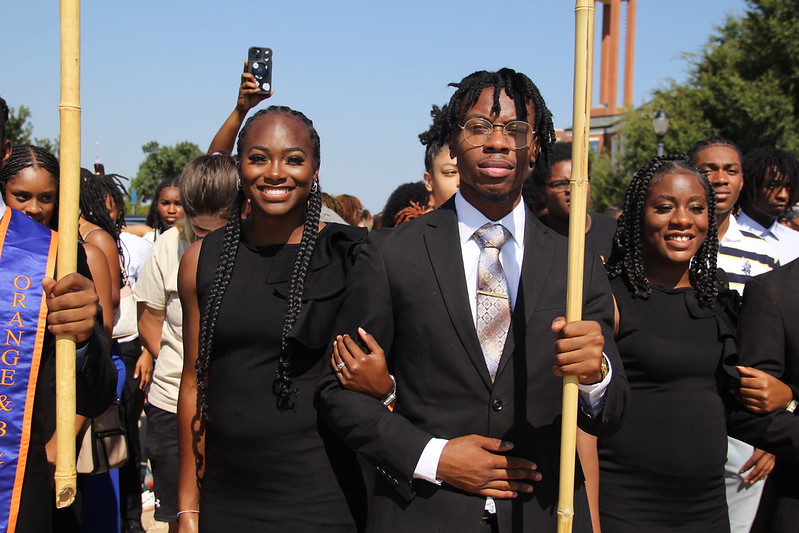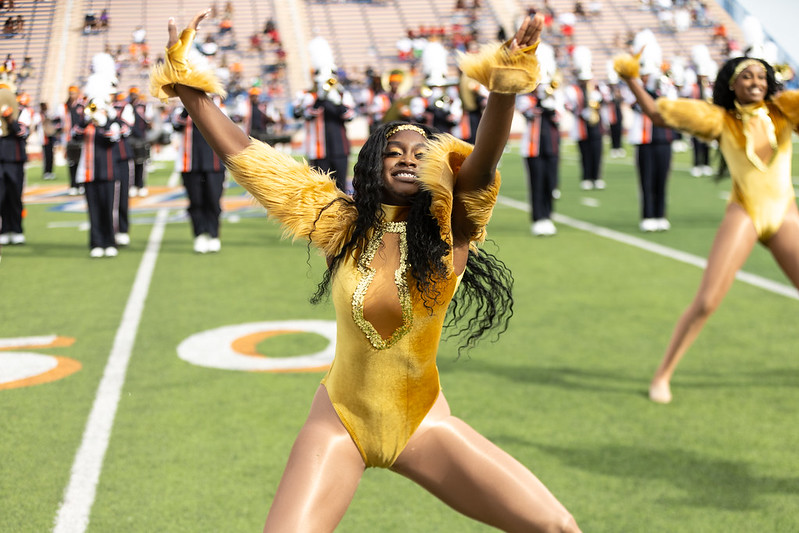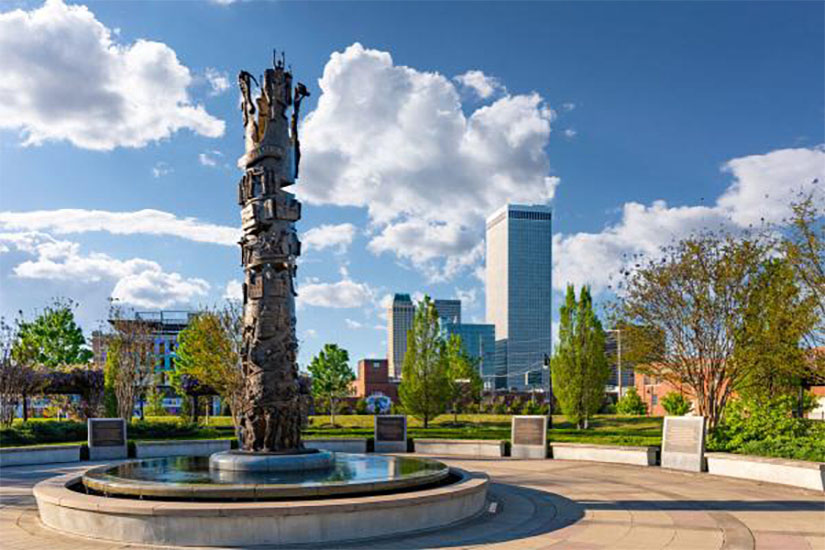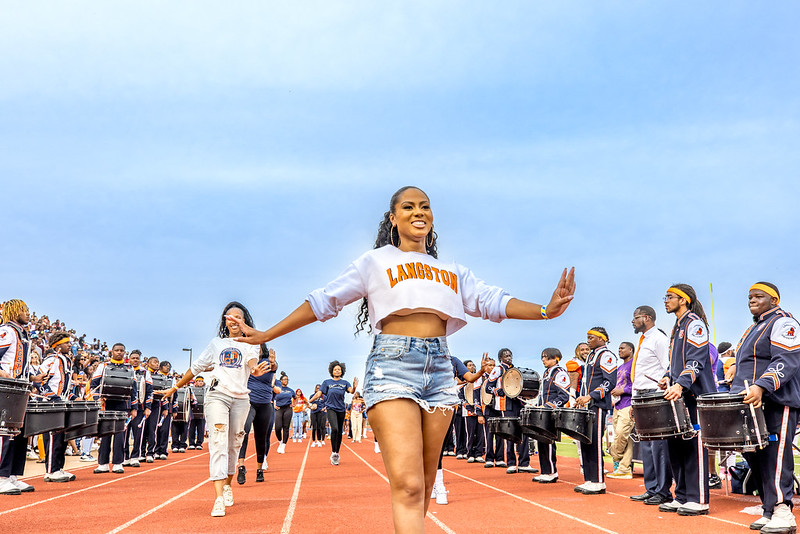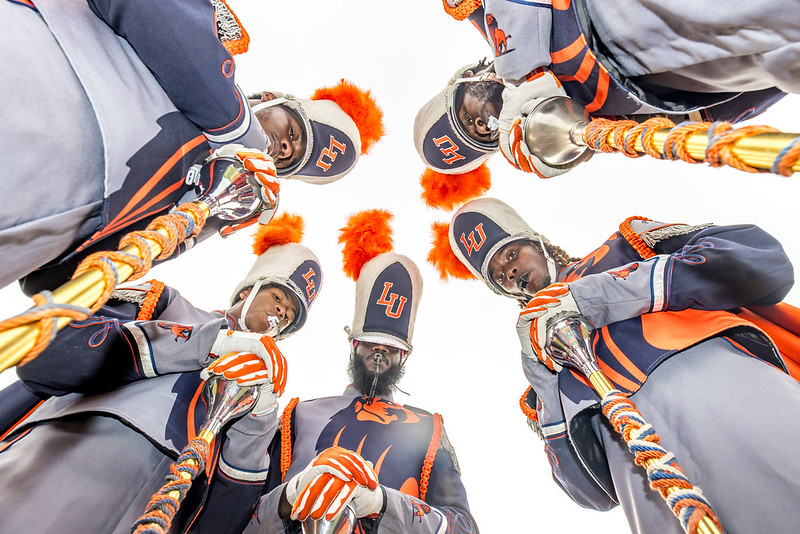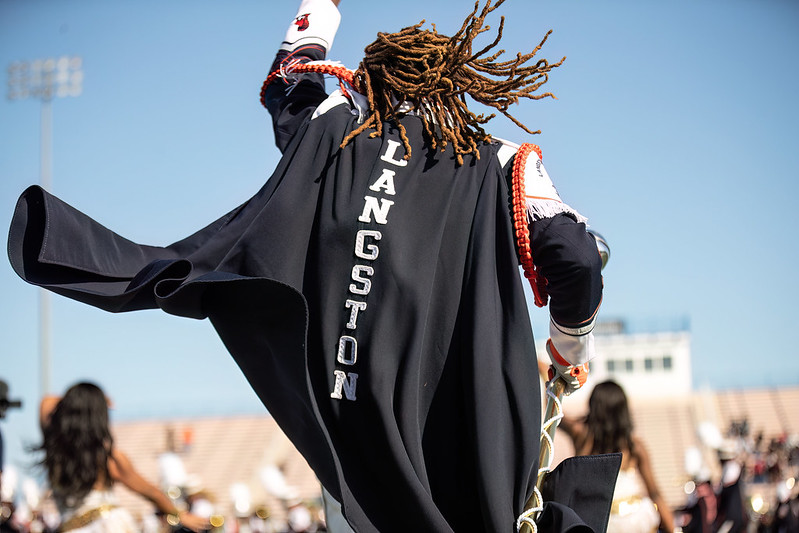
HBCU TRADITIONS
Langston University is a proud HBCU! In addition to an excellent education, LU Lions proudly participate and celebrate these time-honored traditions focused on community, scholarship and culture.
Homecoming – Each autumn, LU welcomes beloved alumni, friends and family members to join students, faculty and staff for an amazing reunion. Throughout the week, thousands gather for the homecoming game, parade, tailgating, step show, athletic hall of fame, concerts, fashion show, and alumni and student events.
Step Show & Strolling – A central component of HBCU culture, particularly within Greek life, is the annual Step Show. Rich in history, step shows and strolling are an expression of LU’s identity and strong community.
Greek Life / Divine Nine – Fraternities and sororities are integral to Dear Langston’s culture. Throughout the year, the Greek organizations offer several events and opportunities to strengthen camaraderie.
Marching Pride Band and Auxiliary Teams – The Marching Pride Band, Golden Feline Dancers and Flash of Fire Flag Line are a constant at Langston University. Their dazzling and energetic performances epitomize what it means to be part of Lion Pride!
Scholarship Pageants and Fashion Shows – The Miss and Mr. Orange & Blue Scholarship Pageant for freshman, and the Miss and Mr. Langston Scholarship Pageant for seniors are hallmark events. These scholarships and fashion shows held throughout the academic year contribute to the rich tapestry of LU’s culture.
The Yard – A hallowed part of the Langston Campus, The Yard is a central gathering place and social hub. In addition to performances and events held throughout the year, it is also home to the Homecoming Yardfest and other festivities.
School Pride – Langston University Pride is always evident. Students, faculty, staff and alumni wear their Orange and Blue at games, events and celebrations throughout the year.

A Proud HBCU Community
Founders’ Day – This annual occasion offers reflections and celebrates our history. At the conclusion of the Annual Founders’ Day celebration, the LU community processes with a wreath to the gravesite of Inman Page, the university’s first president.
Honors Day – Each spring, the LU community gathers to recognize the brightest students who strive for excellence in their academic studies.
Commencement – The annual Spring Commencement celebrates the exceptional accomplishments of the graduating class. During the ceremony, the Outstanding Senior Leaders and the President’s Cup Award winners are announced.
Convocation – The annual fall occasion signifies the start of the academic year. During the ceremony, the Student Government Association Officers are sworn in.
Rite of Passage – At the beginning of each academic year, Lion Camp welcomes new freshman for their weeklong Student Orientation. A Rite of Passage procession is held at the conclusion, signifying the students’ transition into university life.

Langston, Oklahoma
Langston University was established in 1897 as a result of the Second Morrill Act of 1890 and the efforts of the Black community in Langston, Oklahoma.
Langston citizens petitioned the Oklahoma Industrial School and College Commission in 1892 to establish the higher education institution in their town. In 1897, House Bill 151 officially established the Colored Agricultural and Normal University (now Langston University) in Langston, OK.
The town of Langston, Oklahoma, and Langston University are named in honor of John Mercer Langston, an African-American educator and U.S. representative from Virginia.
E.P. McCabe and Charles Robbins opened the town on April 22, 1890. Mr. McCabe established the Langston City Herald in October of that year, utilizing it to promote African American migration to Oklahoma and the community.
Many Oklahomans made Langston their home or have been affiliated with the university. To learn more about the town of Langston and the state of Oklahoma, visit www.okhistory.org.
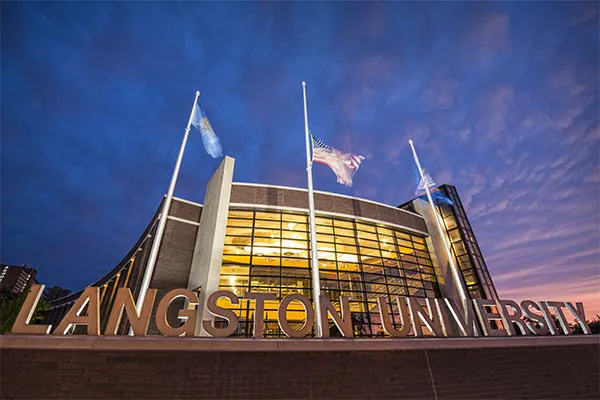
Oklahoma
Tulsa’s Historic Greenwood District – Tulsa is home to the LU-Tulsa Campus. One of the nation’s most prominent destinations for Black history and culture, the Greenwood District was well known as Black Wall Street. To learn more about the district’s unprecedented prosperity in the early 1900s, the Tulsa Race Massacre of 1921, and the resurgence of the Greenwood District in recent times, click here.
All Black Towns – Before it became a state in 1907, Oklahoma was home to approximately 50 All-Black Towns. Founded in the late 19th and early 20th centuries, these towns provided opportunities for prosperity. Today, 13 All-Black Towns remain. These towns are Boley, Brooksville, Clearview, Grayson, Langston, Lima, Red Bird, Rentiesville, Taft, Tatums, Tullahassee, and Vernon, OK. Learn more.

